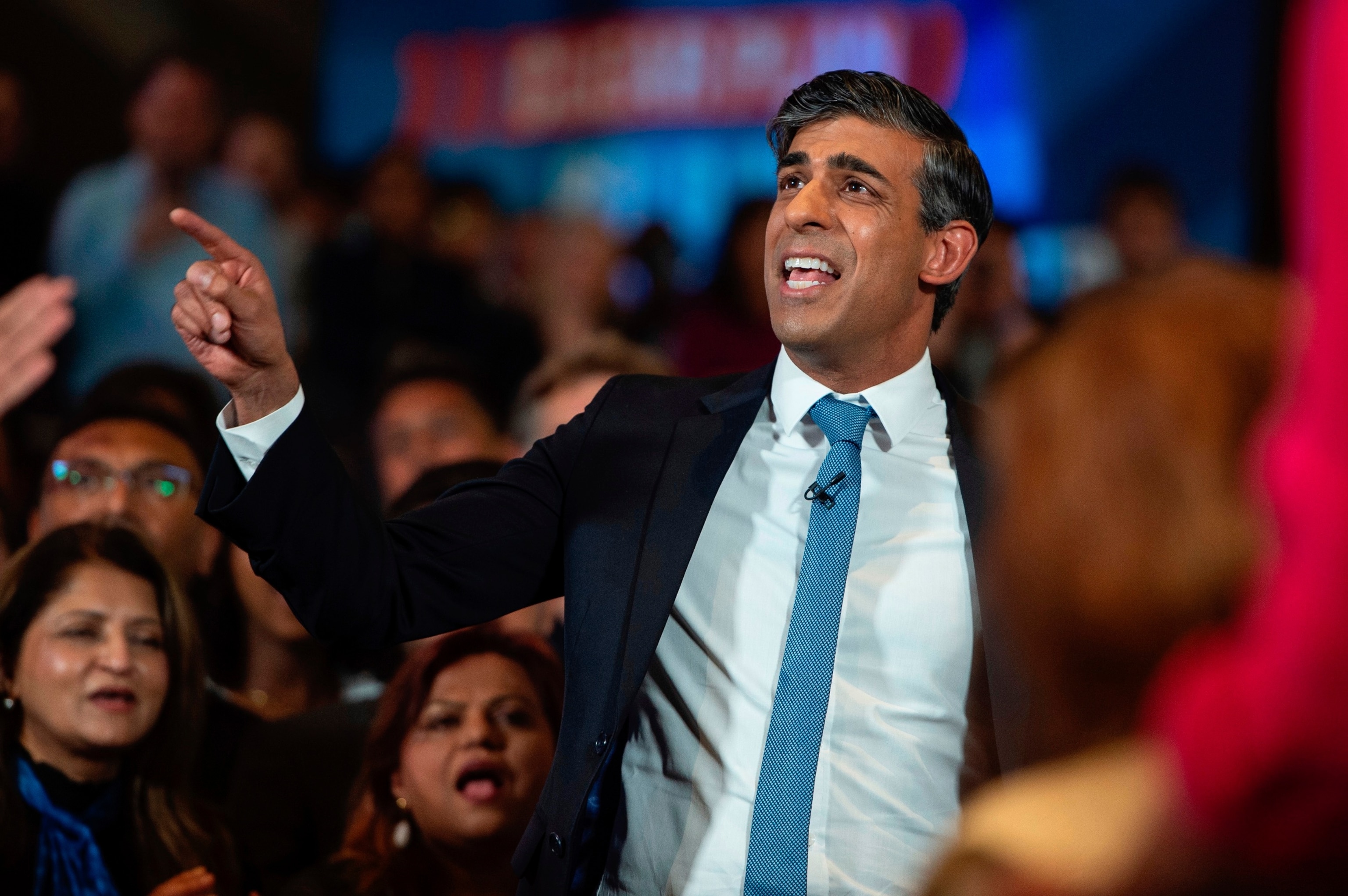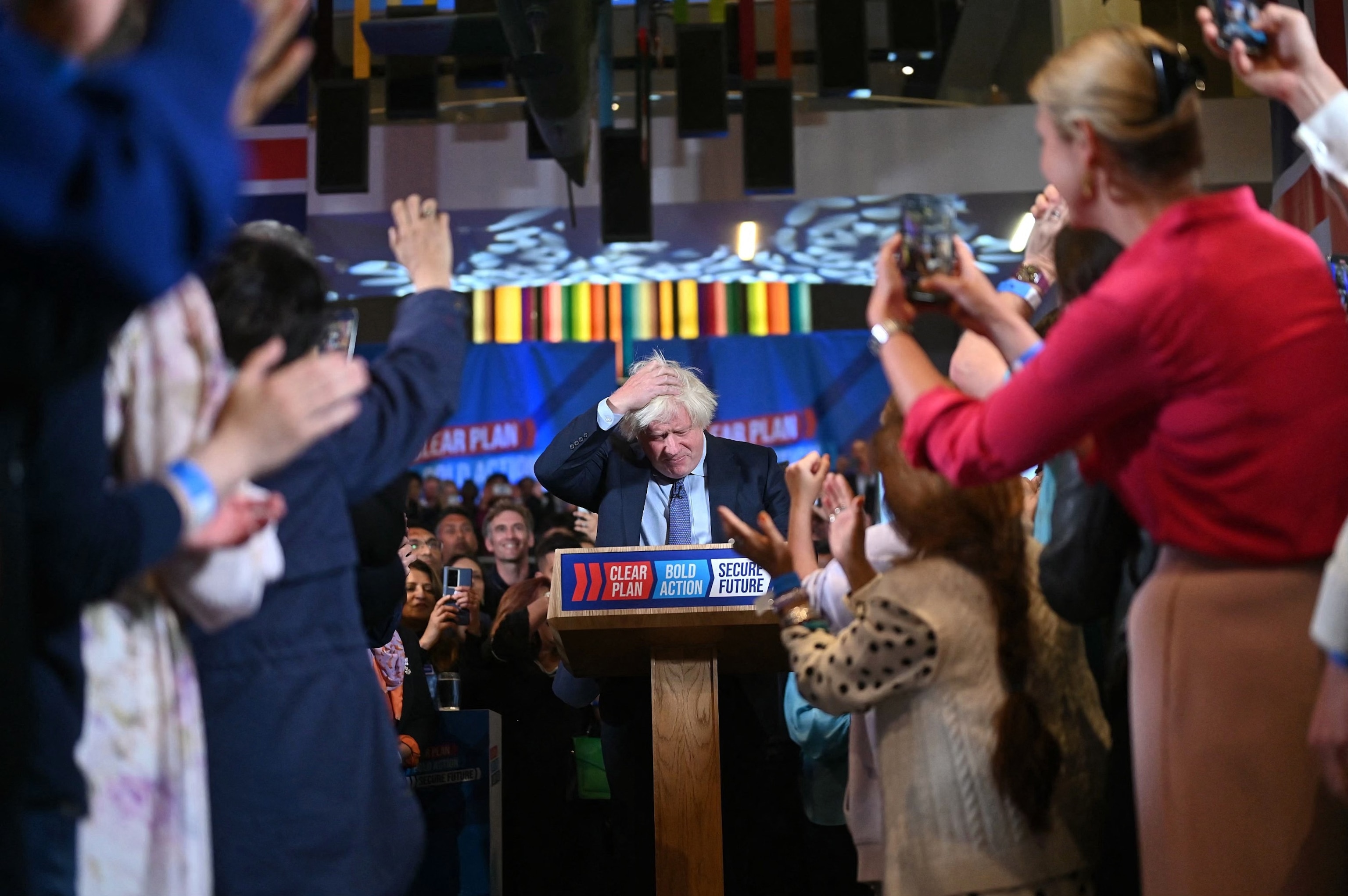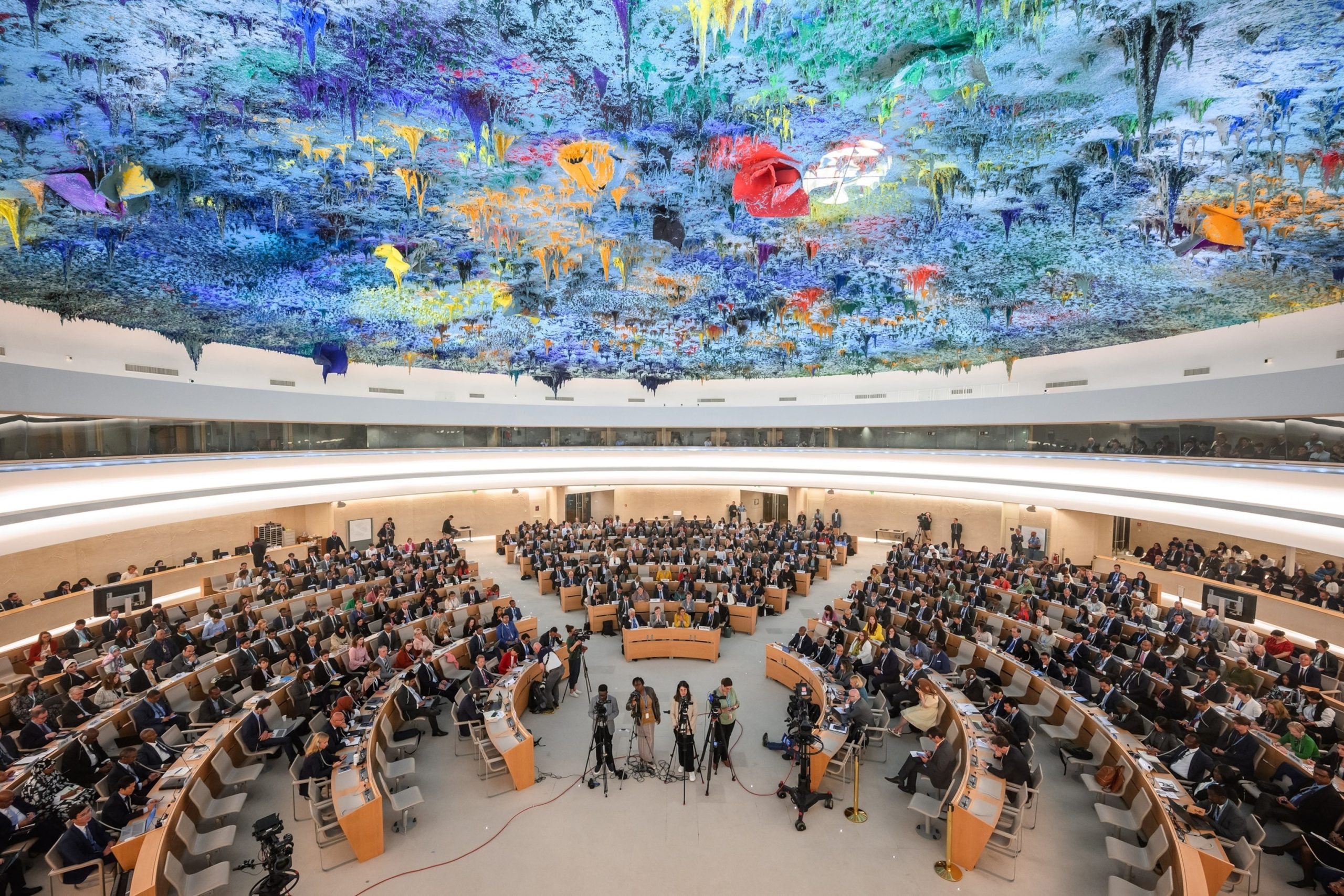LONDON — After 14 years in power with five consecutive prime ministers, the U.K.’s Conservative Party was voted out of power on Thursday, ceding control to Labour, a center-left party that had run on a platform calling for “change.”
The results were widely expected, as public support for the Conservatives, or Tories, had eroded amid Brexit, COVID and a rise in inflation.
Voters in 650 constituencies cast ballots for members of the House of Commons. With almost all the votes counted, Labour candidates were expected to win 412 seats, while Conservatives would take 120 seats, according to the Press Association. Liberal Democrats were expected to have 71 seats.
The election was the country’s first national vote since 2019. Prior to Thursday’s voting, opinion polls in Britain had for more than two years predicted the Conservatives are heading for a “heavy defeat,” Pippa Catterall, a professor of history and politics at the University of Westminster, told ABC News.

Labour Party leader Keir Starmer, center, arrives with First Minister of Wales Vaughan Gething, right, and and local parliamentary candidate for Carmarthenshire, Martha O’Neil, left, for a visit to the West Regwm Farm Events Venue in Whitland, Carmarthenshire, while on the General Election campaign trail, in Wales, Wednesday July 3, 2024.
Stefan Rousseau/AP
“The Conservatives nonetheless went into the election with the hope that, as usual, the polls would narrow in their favor,” Catterall said. “Instead, it got worse.”
The Labour Party’s leader, Keir Starmer, who is now expected to become prime minister, said he hoped to put an end to the Conservative “chaos.” He’ll replace Prime Minister Rishi Sunak, who has been in office since 2022.
Starmer’s campaign released a “manifesto” laying out some of his government’s plans, including cutting hospital wait times, ushering in a greener economy and improving the U.K.’s post-Brexit trade deals with the European Union.

Britain’s Prime Minister and Conservative Party leader, Rishi Sunak, delivers a speech at a Conservative Party campaign event at the National Army Museum in London, Tuesday, July 2, 2024.
Thomas Krych/AP
“From Ukraine to Gaza, Labour’s foreign and defense policy essentially mirrors the current government’s,” Dr. David S. Moon, senior lecturer in politics at the University of Bath, told ABC News. “Starmer’s Brexit plan lacks specifics beyond promising to negotiate a ‘better deal.'”
Moon and other political observers said it’s little surprise the Labour Party had focused its messaging on what the Conservatives did with their time in office rather than campaigning solely on what they hoped to accomplish.
Since David Cameron’s victory in the 2010 general election, the center-right Tories have led the country through a period of economic “austerity,” its exit from the European Union, the COVID pandemic and the current cost of living crisis.
“A Starmer victory seems more the product of a media backlash against the Conservatives following the scandal-plagued Johnson and Truss years rather than excitement about policy proposals, with Labour now seen across newsrooms as a safe alternative following Starmer’s shifting of the party to the right,” Moon said.

Labour Party leader Keir Starmer and his wife Victoria arrive to cast their votes at a polling station on July 4, 2024 in London, United Kingdom.
Leon Neal/Getty Images
Cameron had called for the Brexit referendum before stepping down from power in 2016. He was followed in office by Theresa May, who put together a Brexit deal but stepped down before the deal could be completed. Johnson, in his 2019 campaign, promised to “Get Brexit Done,” and the country left in January 2020.
But the Tory’s leadership during the U.K.’s messy exit from the European Union is likely only one of many reasons that support for the party has waned, said Sean D. Ehrlich, associate professor of political science at Florida State University.
Johnson oversaw a chaotic rollout of COVID restrictions, which were then broken by Johnson himself during a Christmas gathering at 10 Downing Street, the prime minister’s official residence.
Truss introduced a “mini-budget” in 2022 that included a series of tax cuts aimed a growing the economy, but she reversed course within days amid public backlash.
British inflation then spiked under Sunak, rising to a high of 11% in late 2022, according to the Office for National Statistics.
“The Conservatives are deeply unpopular in large part because they are no longer viewed as competent,” Ehrlich said. “Their struggles to implement Brexit play a large role in this decline in support but the election should probably not be viewed as a repudiation of Brexit itself.”
About six weeks ago, as Sunak announced he was calling a general election for July, he was caught in the rain in front of Downing Street without an umbrella.
The prime minister, who came to power in 2022 via an internal party election, has said Labour’s election would lead to weaker border security and higher taxes. He said Thursday that a Tory defeat could mean “higher taxes for a generation.”
“Labour would increase taxes on every part of your life, including your death,” he said on social media.

Former British prime minister Boris Johnson addresses Conservative Party supporters at the National Army Museum in London on July 2, 2024.
Justin Tallis/AFP via Getty Images
As former Prime Minister Boris Johnson addressed a Conservative Party rally in London on Tuesday, he made clear that opinion polls were predicting his party was expected to be swept out of power with Thursday’s election.
“I think and hope the British people will show more sense on Thursday and draw back from the brink,” Johnson said during his first campaign speech in support of Sunak.
One of Sunak’s cabinet members, Home Secretary Suella Braverman, put the party’s prospects more succinctly the following day, writing in an op-ed published Wednesday that “it’s over.”
In a historic turn of events, the Labour Party has emerged victorious in the recent British general election, bringing an end to the 14-year Conservative rule in the country. The stunning victory marks a significant shift in the political landscape of Britain and has left many political analysts and citizens alike in awe.
The Labour Party, led by charismatic leader John Smith, ran a campaign focused on addressing key issues such as healthcare, education, and the economy. Their promises of increased funding for the National Health Service, better access to education for all, and a fairer distribution of wealth resonated with voters across the country.
On the other hand, the Conservative Party, led by incumbent Prime Minister David Cameron, faced criticism for their handling of various crises during their time in power. From the controversial Brexit negotiations to the austerity measures that left many struggling to make ends meet, the Conservatives were unable to regain the trust of the electorate.
The election results came as a surprise to many, with Labour securing a majority in parliament and paving the way for John Smith to become the next Prime Minister of Britain. The victory is seen as a rejection of the Conservative government’s policies and a clear mandate for change.
As the Labour Party prepares to take office, they face a daunting task of delivering on their promises and rebuilding the country after years of Conservative rule. The new government will need to work quickly to address pressing issues such as the ongoing pandemic, economic recovery, and social inequality.
The election results have sparked hope and optimism among many Britons who are looking forward to a new era of governance under the Labour Party. The incoming government has promised to put the needs of the people first and work towards building a fairer and more inclusive society for all.
Overall, the Labour Party’s victory in the recent election marks a significant turning point in British politics and signals a new chapter for the country. With a fresh perspective and a renewed sense of purpose, the new government is poised to bring about positive change and lead Britain towards a brighter future.



